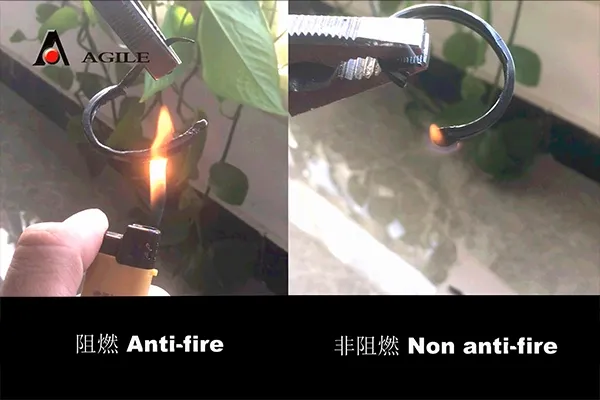Durable Plastic Corrugated Conduit for Efficient Electrical Protection and Wiring Solutions
Understanding Plastic Corrugated Conduit Features and Applications
Plastic corrugated conduit is a versatile type of tubing that is widely used in various electrical and mechanical applications. Its unique structure, comprising a series of ridges and grooves, provides excellent flexibility and durability, making it suitable for a wide range of environments and conditions.
What is Plastic Corrugated Conduit?
Plastic corrugated conduit is typically made from high-density polyethylene (HDPE) or polyvinyl chloride (PVC). The corrugated design gives it increased strength and flexibility compared to rigid conduits. This type of conduit is often used to protect electrical wiring, cables, and other sensitive components from environmental damage, such as moisture, dust, and mechanical stress. The flexibility of the corrugated design allows it to bend around obstacles easily, making it an ideal choice for complex installations.
Key Features
1. Durability One of the standout features of plastic corrugated conduit is its durability. Resistant to chemicals, corrosion, and UV exposure, it can withstand harsh conditions that would degrade other materials over time. This makes it particularly useful in outdoor applications.
2. Flexibility The corrugated structure provides significant flexibility, allowing the conduit to navigate tight spaces and awkward angles. This flexibility also facilitates easier installation, as it can be cut to custom lengths and bent to fit specific configurations without the need for fittings.
3. Lightweight Compared to metal conduits, plastic corrugated conduit is much lighter, which simplifies transportation and handling. This can reduce labor costs and make installation faster and easier.
4. Cost-Effectiveness The combination of durability, lightweight nature, and ease of installation contributes to the overall cost-effectiveness of plastic corrugated conduits. They generally require less maintenance over their lifespan, reducing long-term costs.
plastic corrugated conduit

Applications
Plastic corrugated conduits are used across various sectors, including
- Electrical Installations In residential and commercial buildings, these conduits are commonly used to house electrical wiring, protecting them from damage and environmental factors. They can be installed in walls, ceilings, and underground.
- Industrial Uses In manufacturing facilities, plastic corrugated conduits protect wiring from mechanical wear and chemical exposure. They are ideal for use in areas with heavy machinery, where accidental abrasion or damage could occur.
- Telecommunications The flexibility and protective qualities of these conduits make them suitable for safeguarding telecommunications cables, ensuring reliable signal transmission while preventing physical damage.
- Automotive Plastic corrugated conduits are also widely used in the automotive industry, where they protect wiring harnesses against heat and corrosion. Their ability to withstand extreme temperatures makes them an excellent choice for vehicle applications.
- HVAC Systems In heating, ventilation, and air conditioning systems, these conduits can be used to protect electrical wiring and sensors that are integral to system operation.
Conclusion
In conclusion, plastic corrugated conduit is an essential component in various industries due to its unique features, including durability, flexibility, and cost-effectiveness. Its versatility allows it to be used in numerous applications, from protecting electrical wiring to safeguarding telecommunications cables. As industries continue to evolve and demand reliable and efficient solutions, plastic corrugated conduits will remain a critical choice for professionals looking to ensure the integrity and longevity of their installations. Whether in outdoor settings or harsh industrial environments, the benefits offered by plastic corrugated conduit make it an invaluable resource for modern engineering practices.








